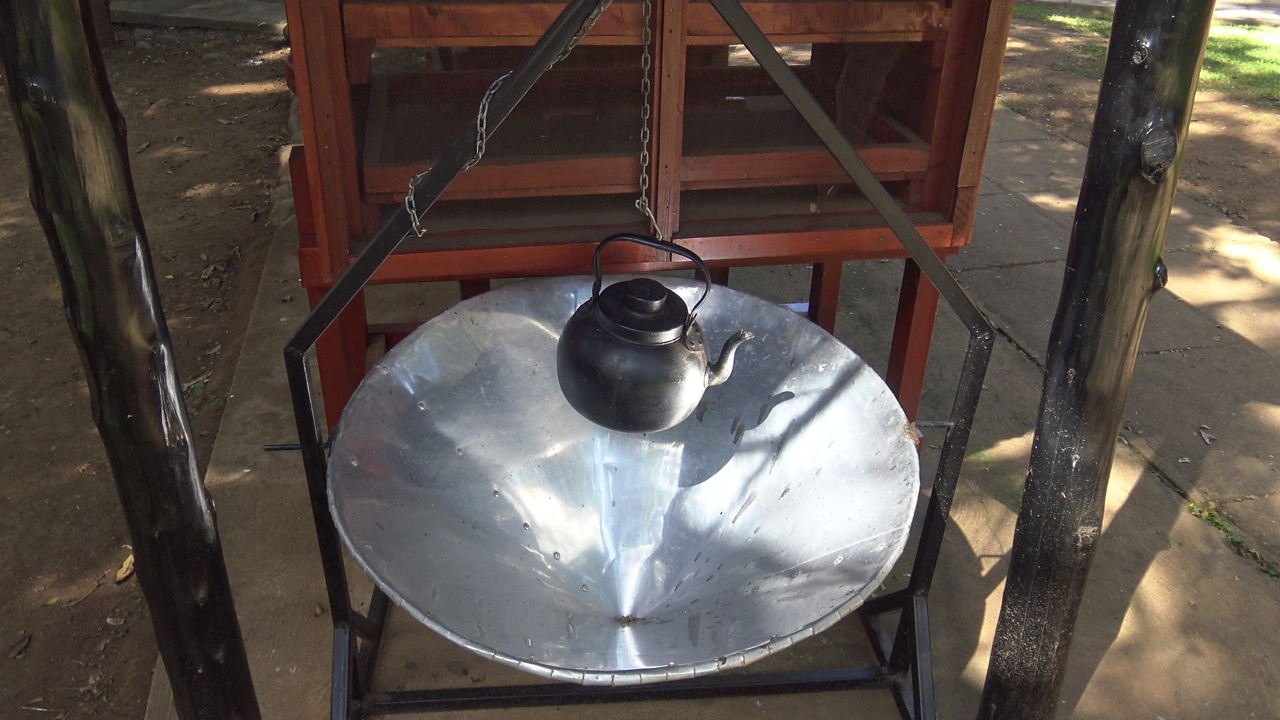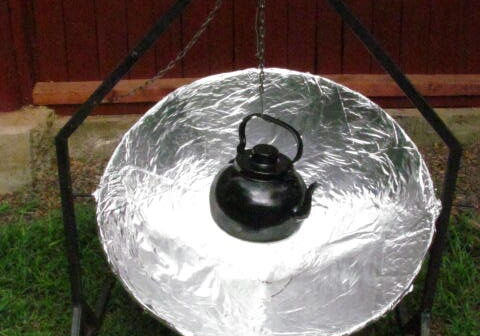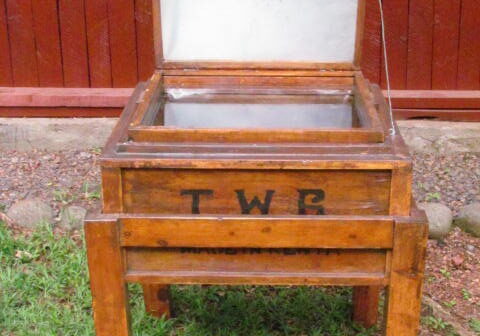
Education center
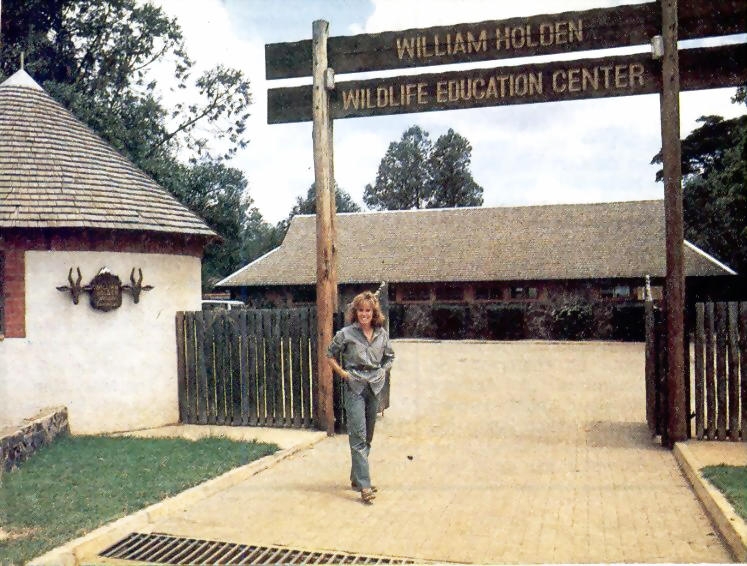
Our education center is located near the town of Nanyuki, at 7,000 above sea level, on the slopes of Mt. Kenya, 3 ½ hours by car north of Nairobi, the capital of Kenya, in East Africa.
The center occupies 15 acres of land excised from the Mt. Kenya Game Ranch and adjacent to the Mt. Kenya Safari Club – both of which were founded by William Holden in the late 1950s and early 1960s prior to Kenya’s independence.
We cater to local Kenyans from ages 9 through adult, groups who visit on day trips or overnight stays in dormitory style tents. We offer male and female shower and toilet facilities, providing water heated by solar energy. The center contains a kitchen and wash-up area, as well as two fuel efficient cookers that can prepare food for more than 60 guests using a minimum of wood.
The center contains practical installations that teach lifestyle techniques using solar powered ovens, bush refrigeration, alternative fuel briquettes, fuel efficient cooking for large amounts of people, solar cooker, biogas energy, composting, model farming techniques, tree nursery, fish farm ,wetlands water filtration system, and recycled uses for plastic bottles.
70% of Kenya’s population are rural, the remaining 30% live in towns and cities. As the world becomes progressively urbanized, we must protect the world heritage species of wildlife and biodiversity of the natural world through education programs that teach how crucial their protection, survival and rehabilitation are to our own quality of life and the life of the planet itself.
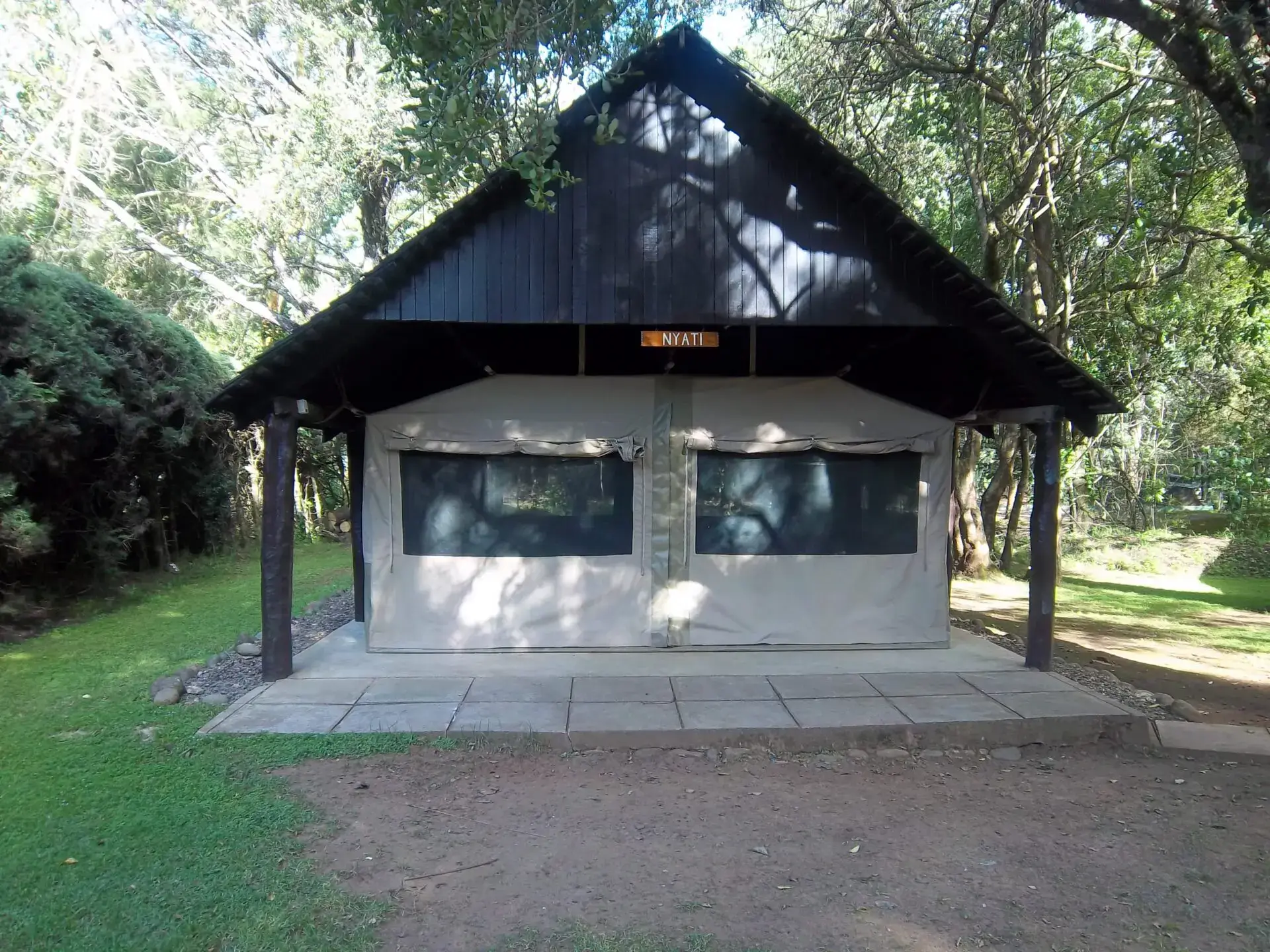
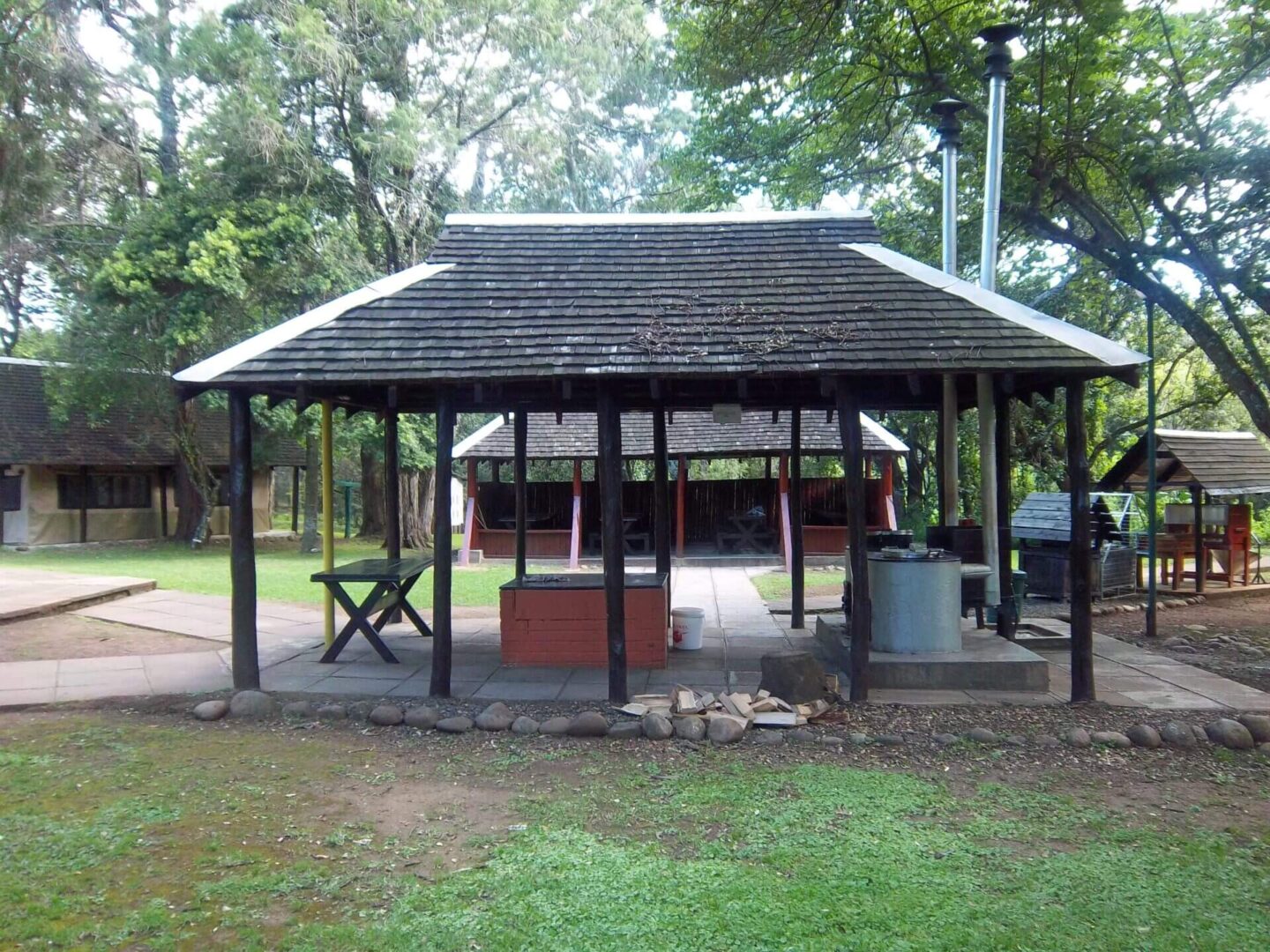
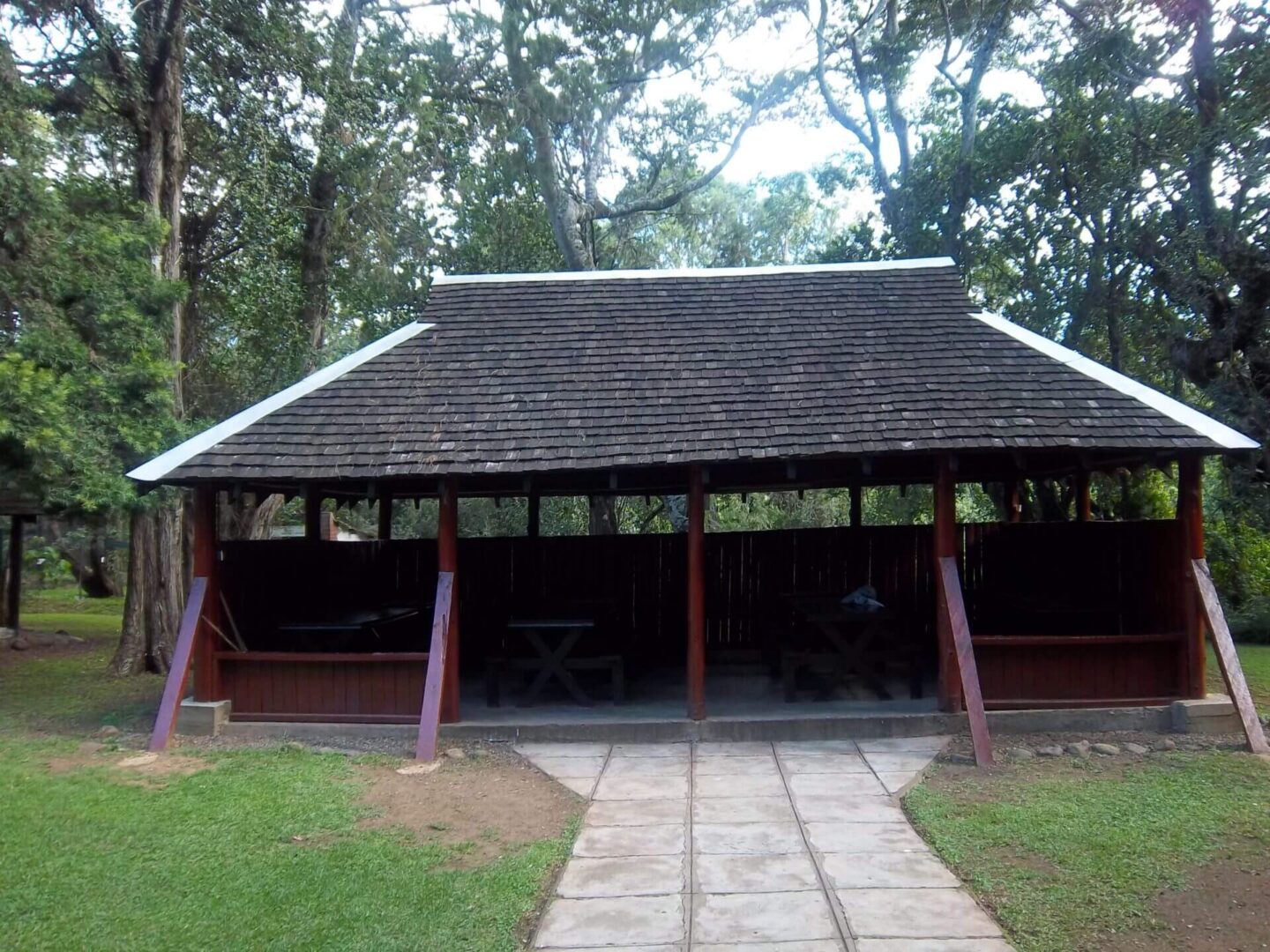
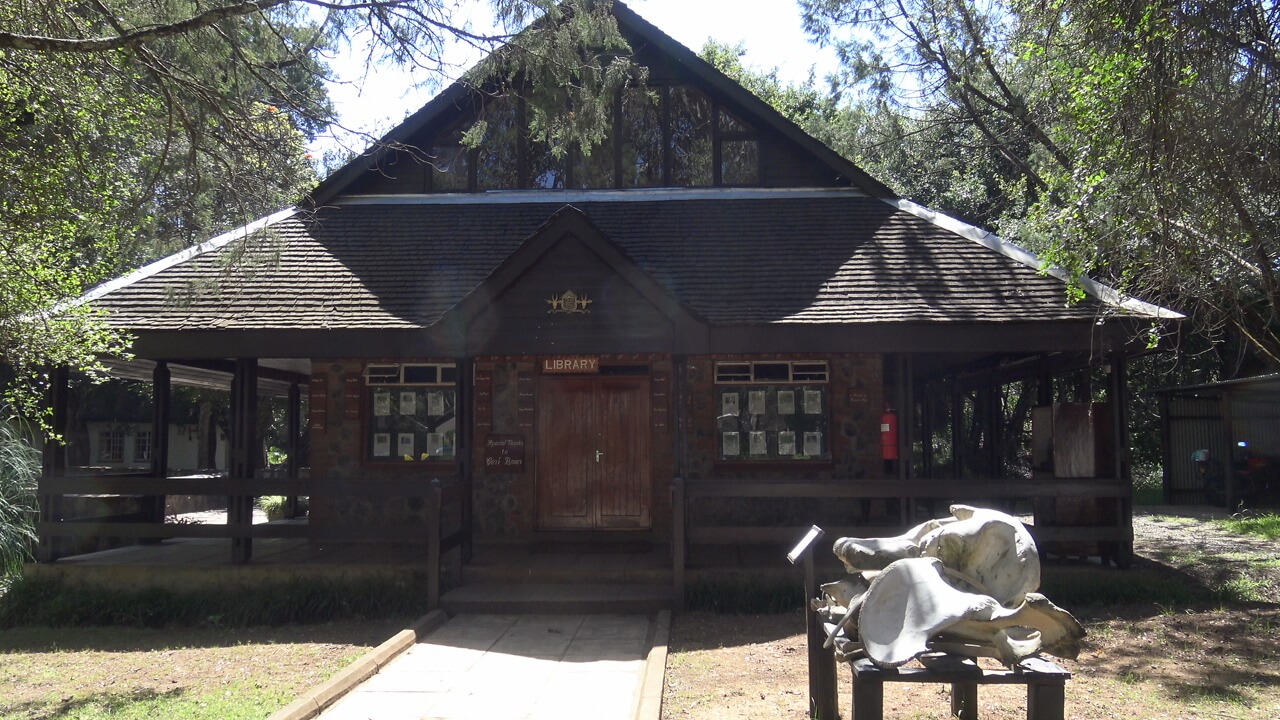
Education Center Library
Our library contains an extensive collection of books, charts, maps, illustrations, and videos to be used by our lecturers for all visiting groups. The interior of the library can accommodate over 100 people and offers students and visitors an opportunity to further explore the world around them with programmed lectures appropriate for each group.
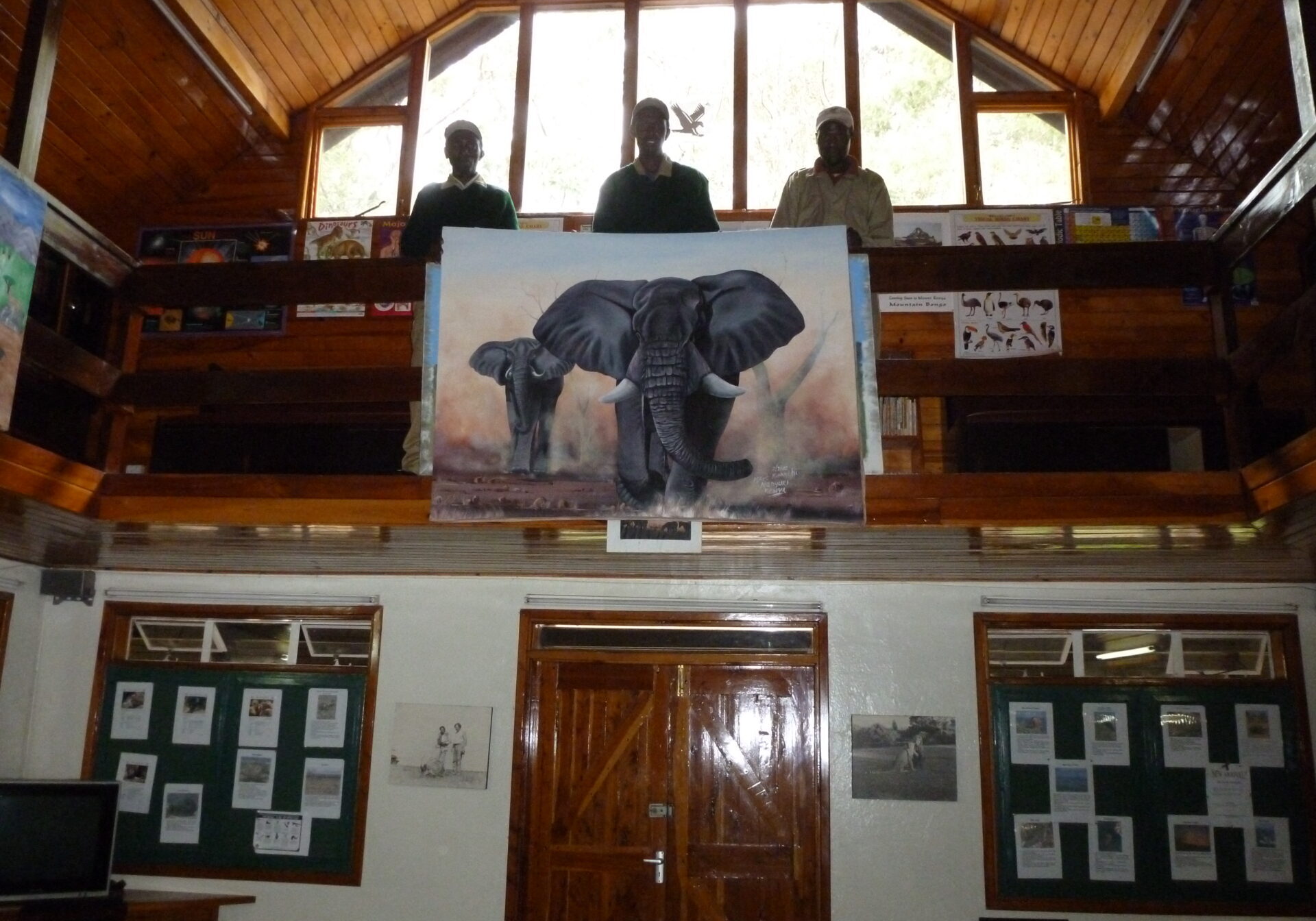
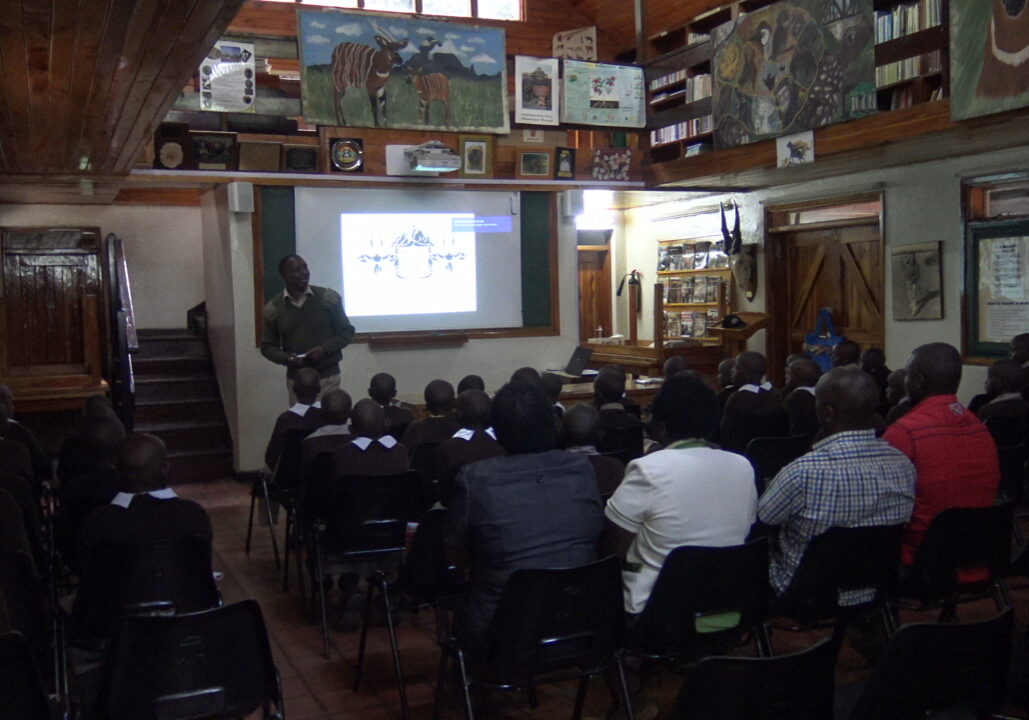
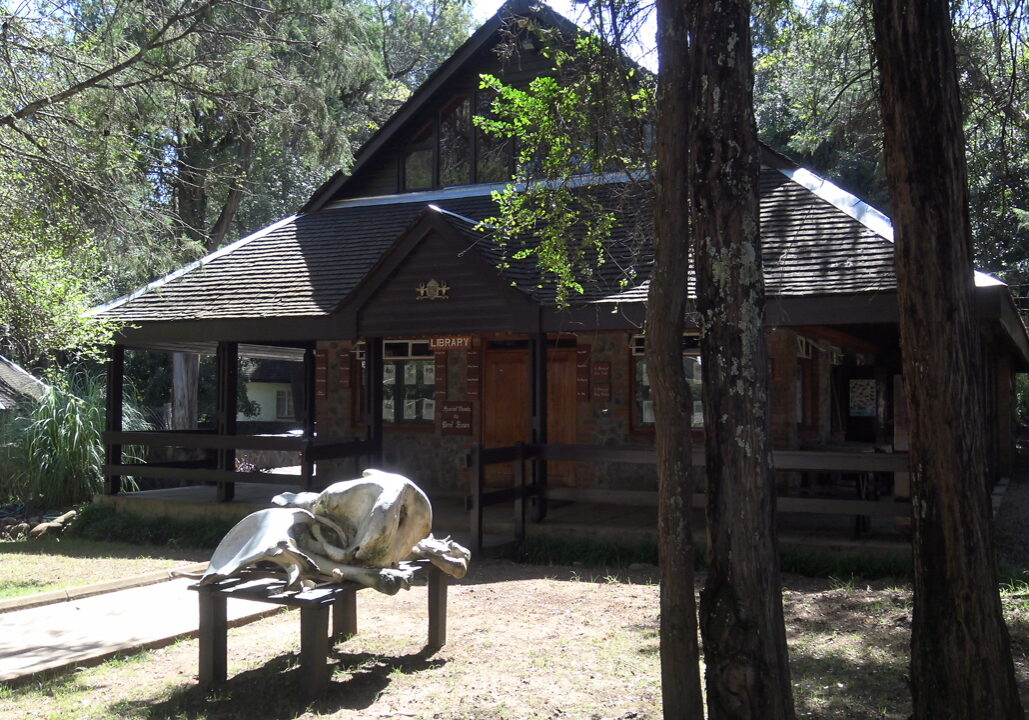
Trout Pond
Borrowing water from the Nanyuki River that flows through our property, we are able to raise fingerling trout using solar energy to power lights that draw insects for the fish to feed on thus we raise naturally grown trout not fed on commercial feed and not producing any environmental impact on the river. We borrow water from the river and return it to the river with no pollution while raising a crop on minimal land.
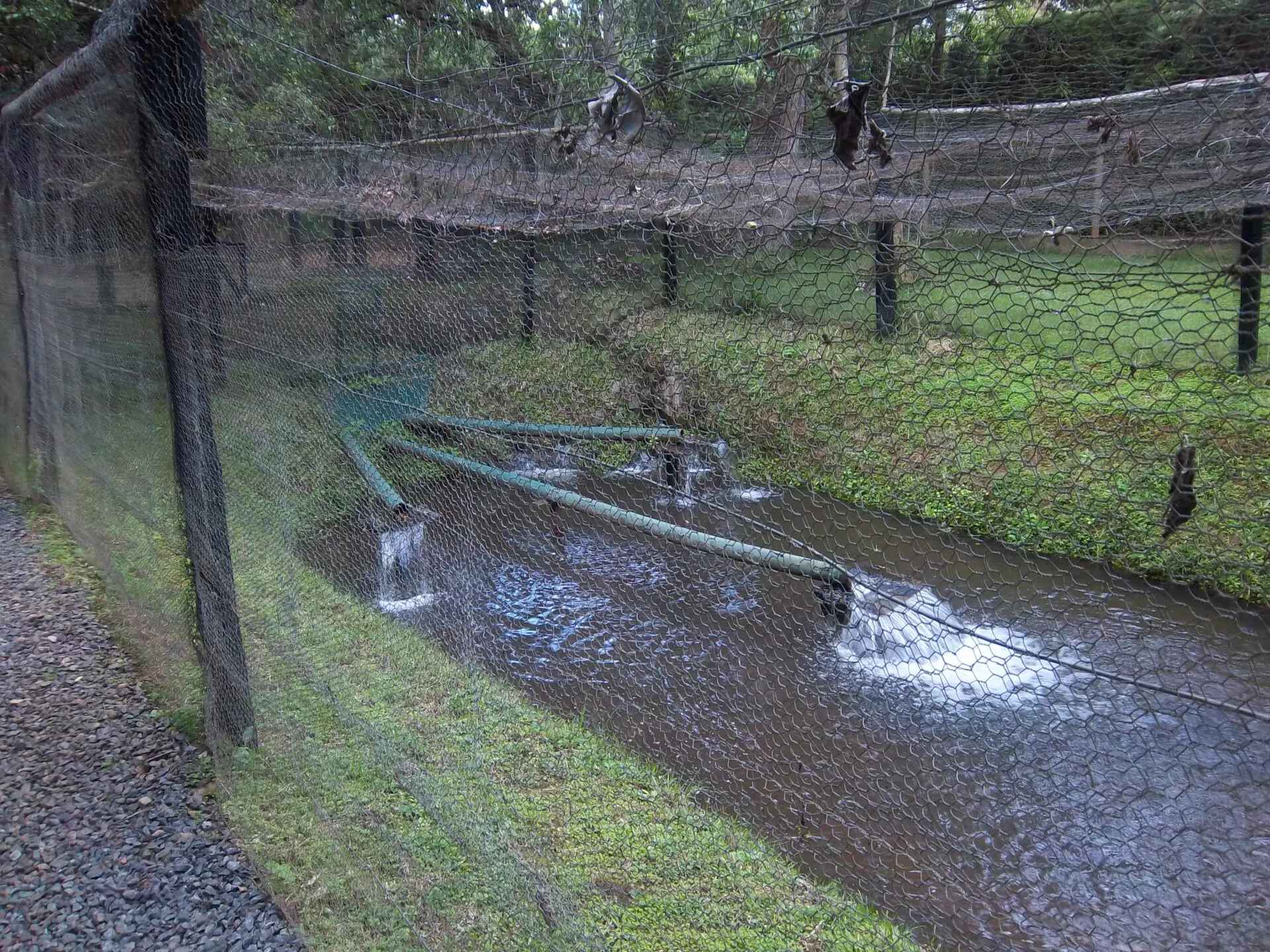
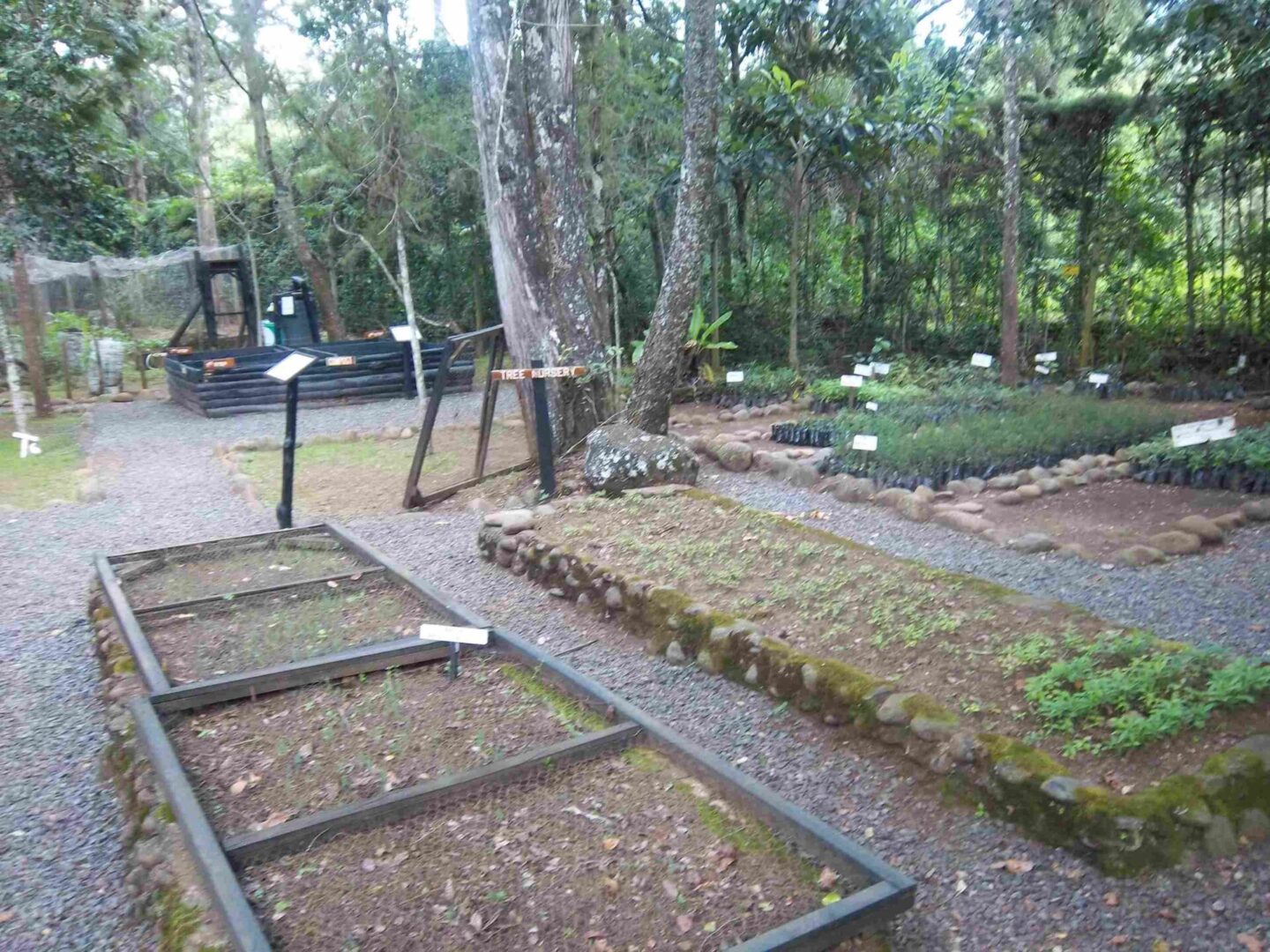
Tree Nursery
There is no doubt that deforestation has contributed to devastating environmental changes. The simple solution is to plant more trees! In that light, we constructed a tree nursery, and students are taught methods of sowing and caring for seedlings. The education center provides seedlings for students from all over Kenya to take home, and to plant at the center for our own fuel source.
Fuel Efficient Cooker
The Bellerive Foundation came up with the Bellerive Cooker, a remarkable fuel-efficient cooking system. A stainless-steel pot is inserted in the stove surrounded by fire bricks that conduct the heat around the pot, the heat is generated by the fire below, the food cooks quickly on a minimal of fuel without burning the pot. The stove can also serve as an oven so it provides every cooking need while demonstrating good conservation of fuel and feeding as many as 100 children from a single pot.
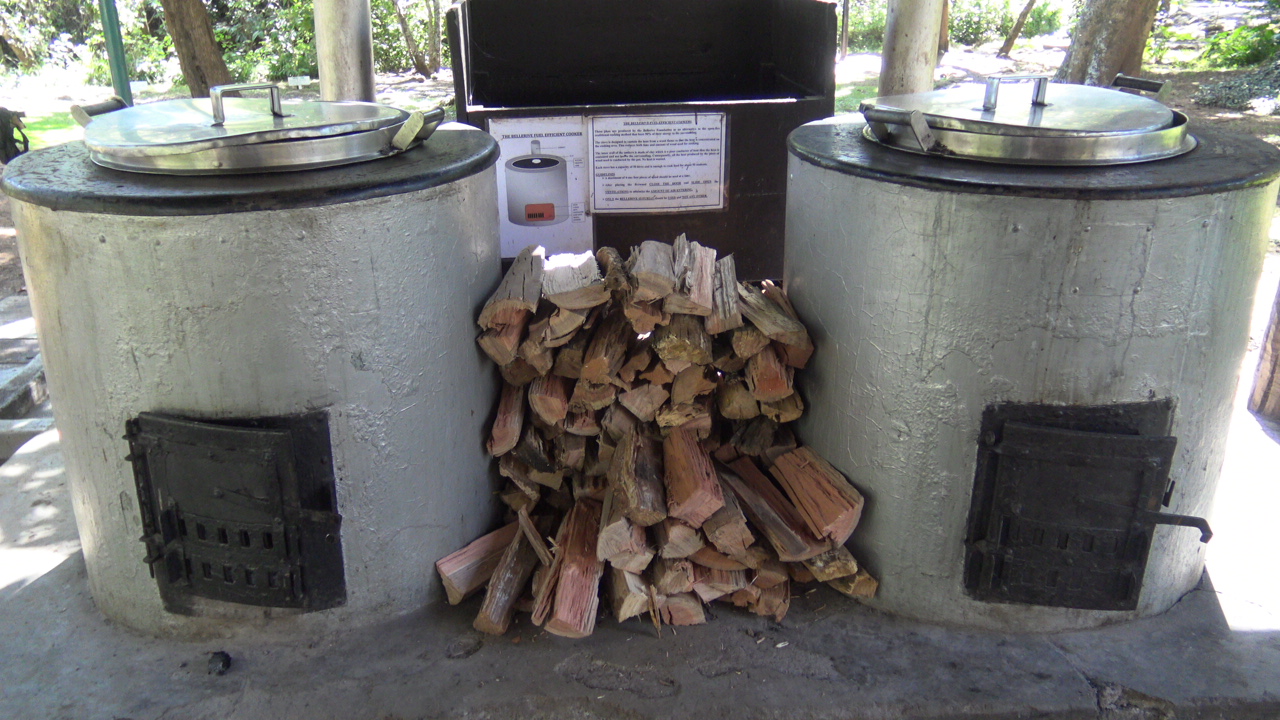
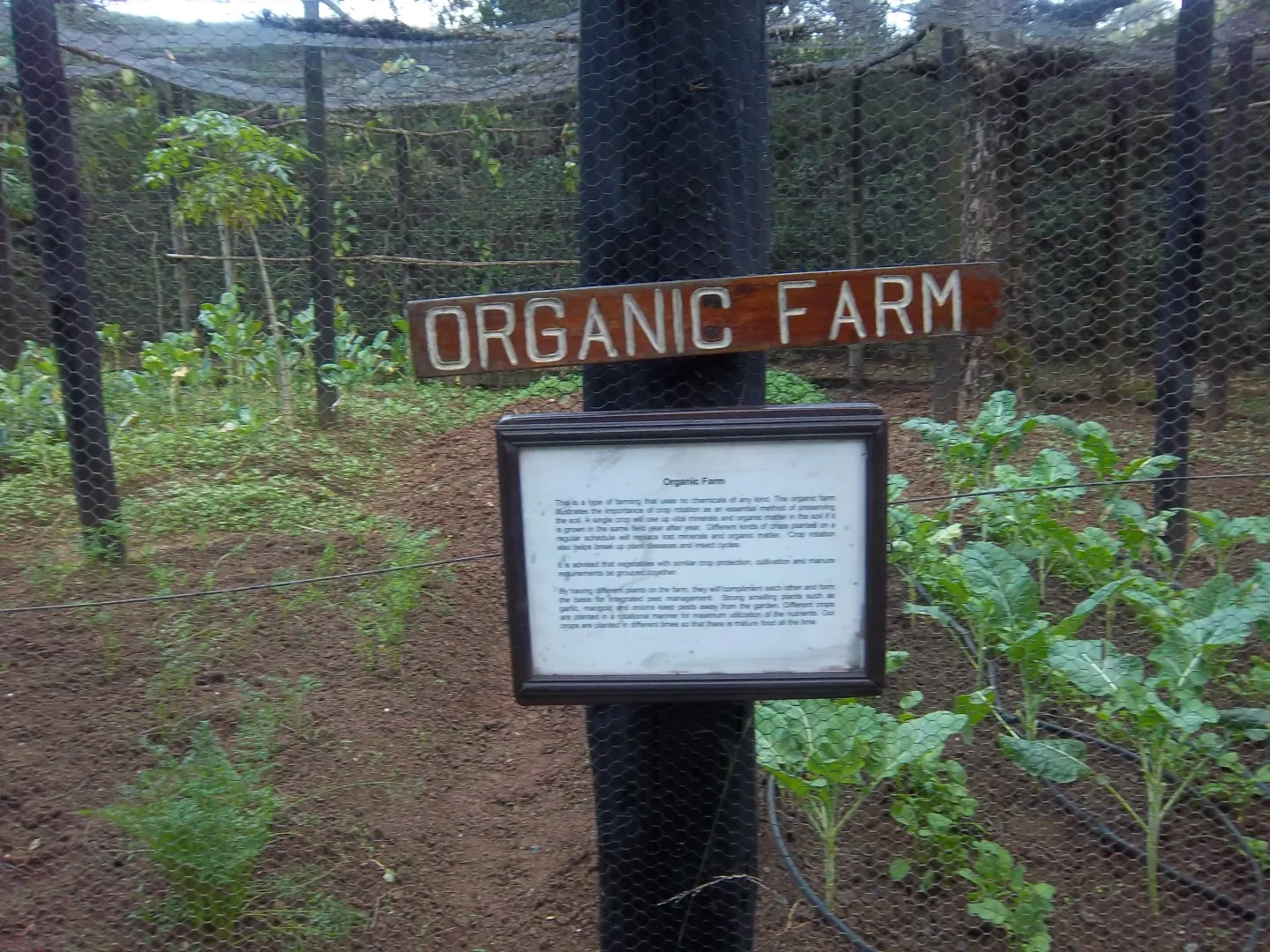
Model Garden
Our model garden teaches permaculture farming and soil regeneration, making an excellent lesson for efficient land use on small plots.
Permaculture Wetlands Project
With a grant from the J.L. Foundation, the Education Center has a Permaculture Wetlands. The wetlands replicate nature’s own purification system through an elaborate filtration of water from toilets, kitchens, showers, and rain. The planting is designed to remove impurities, and serves as a nursery for many species of insects and birds formally killed by over use of chemicals in agriculture.
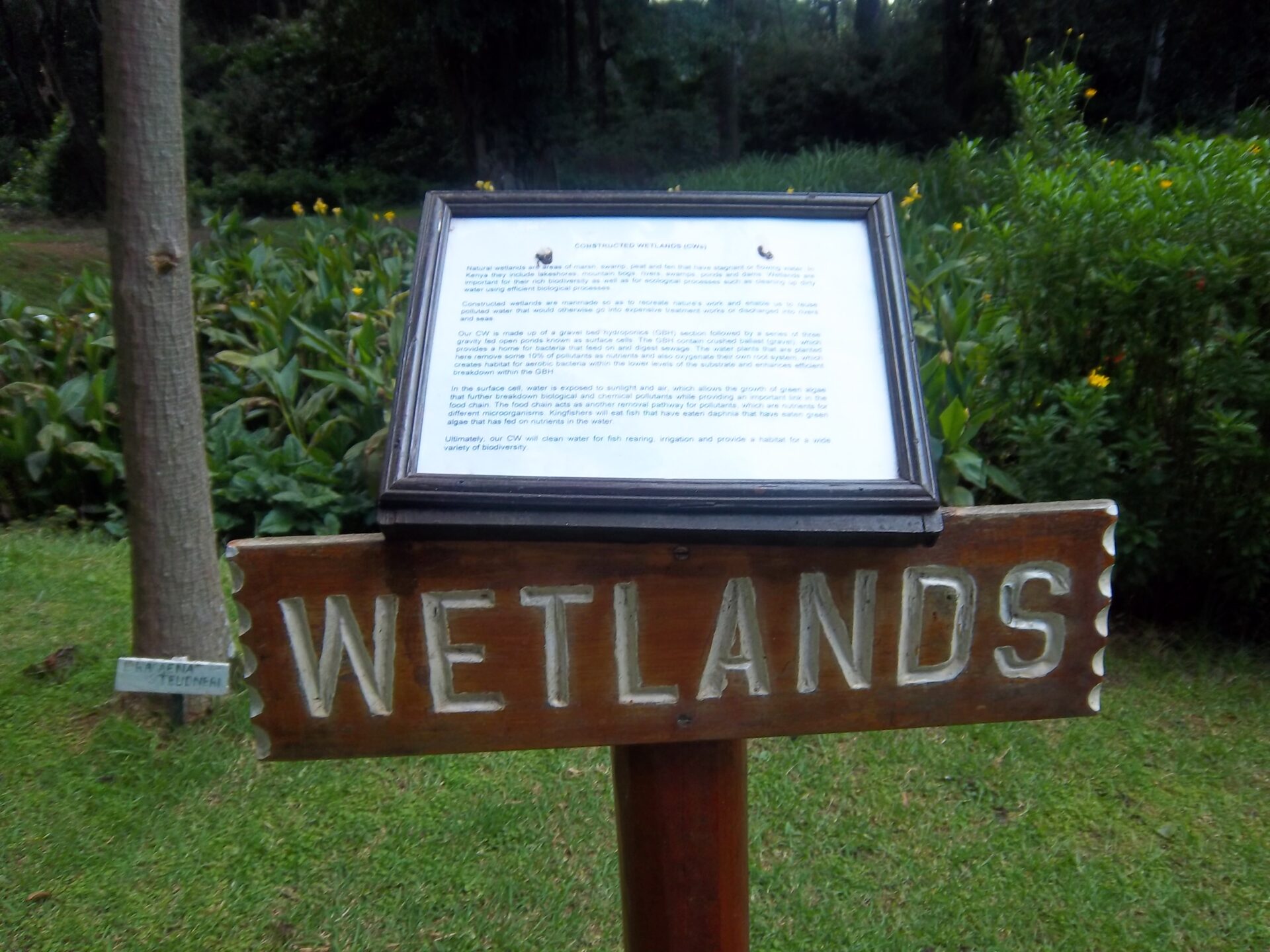
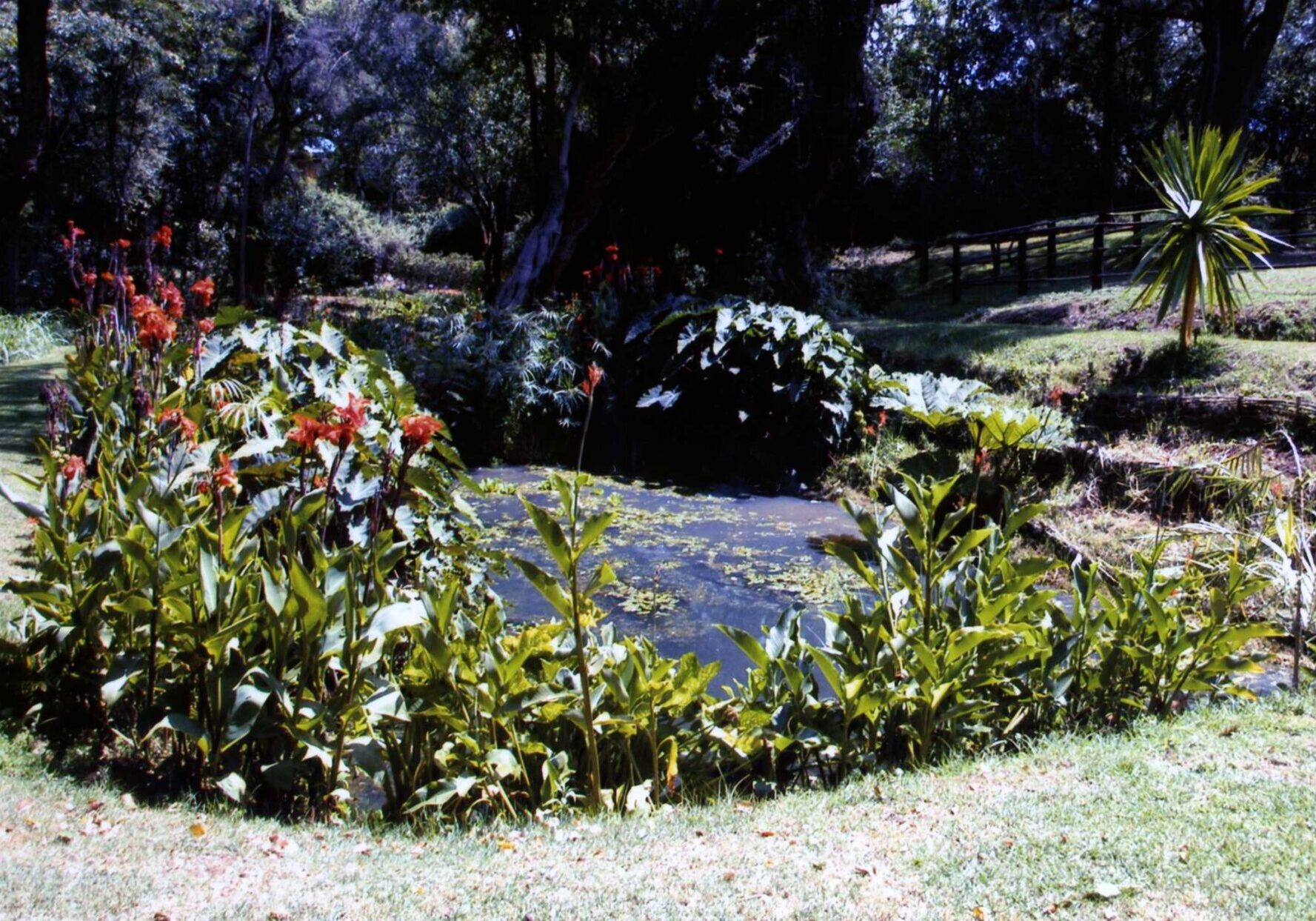
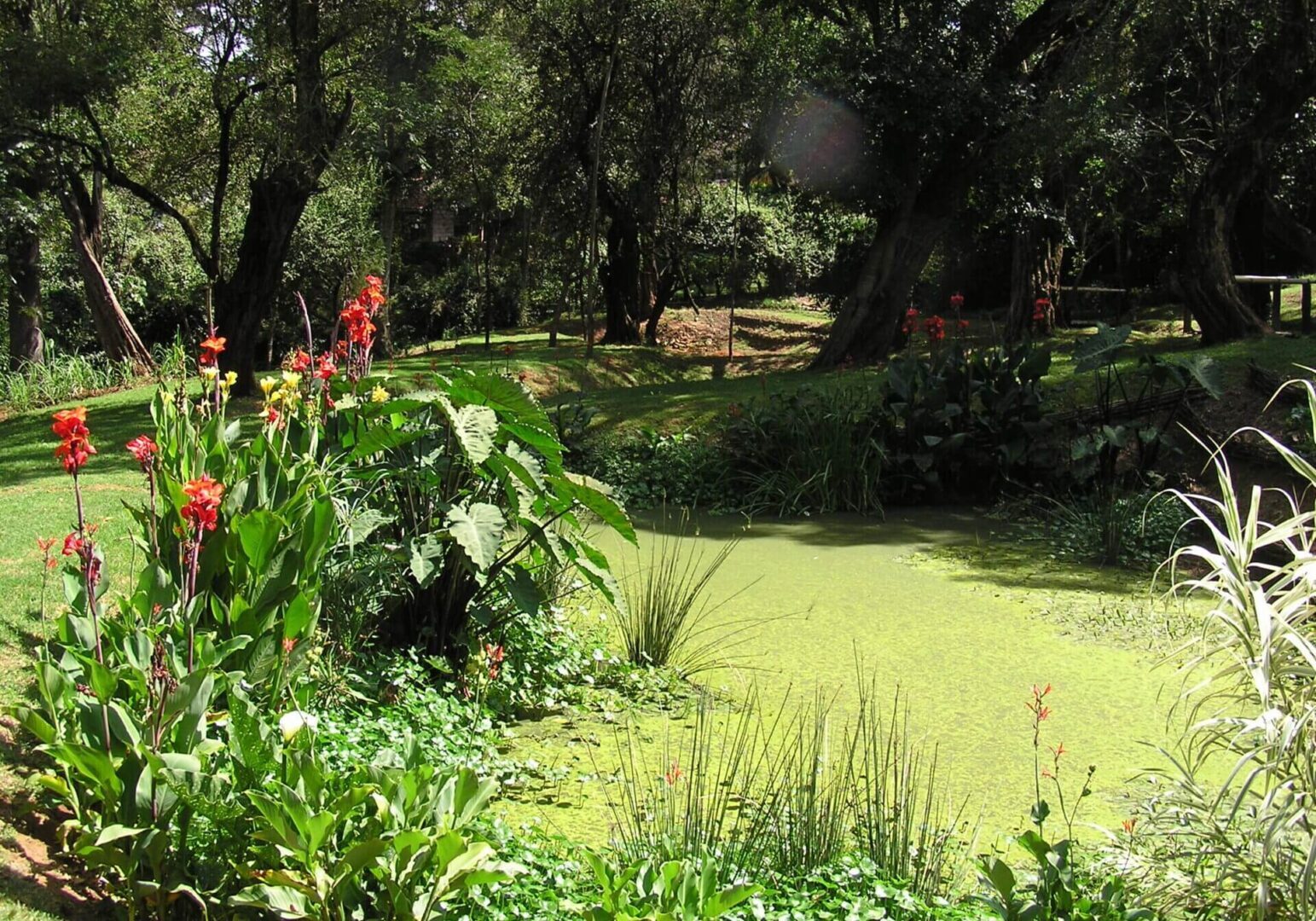
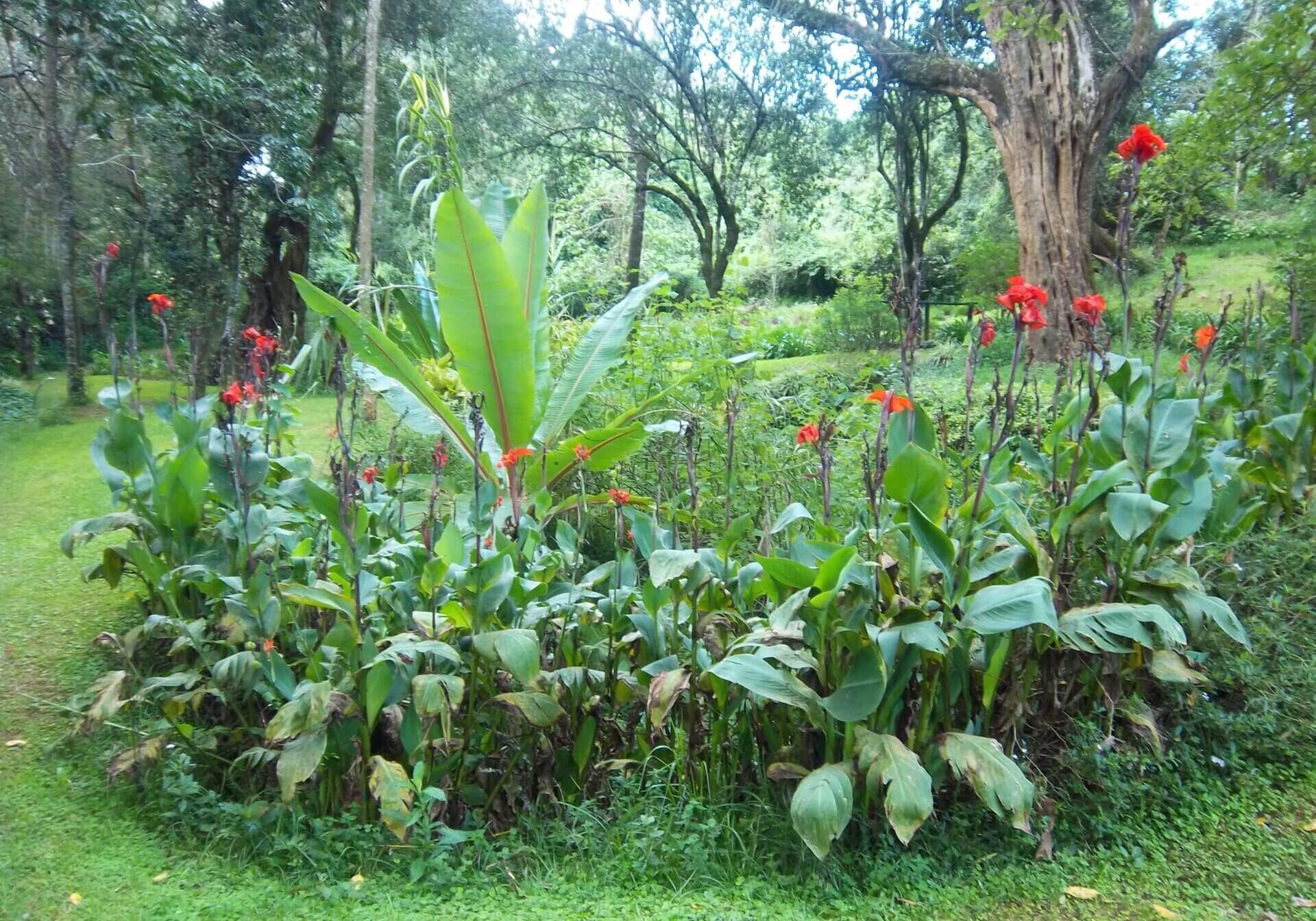
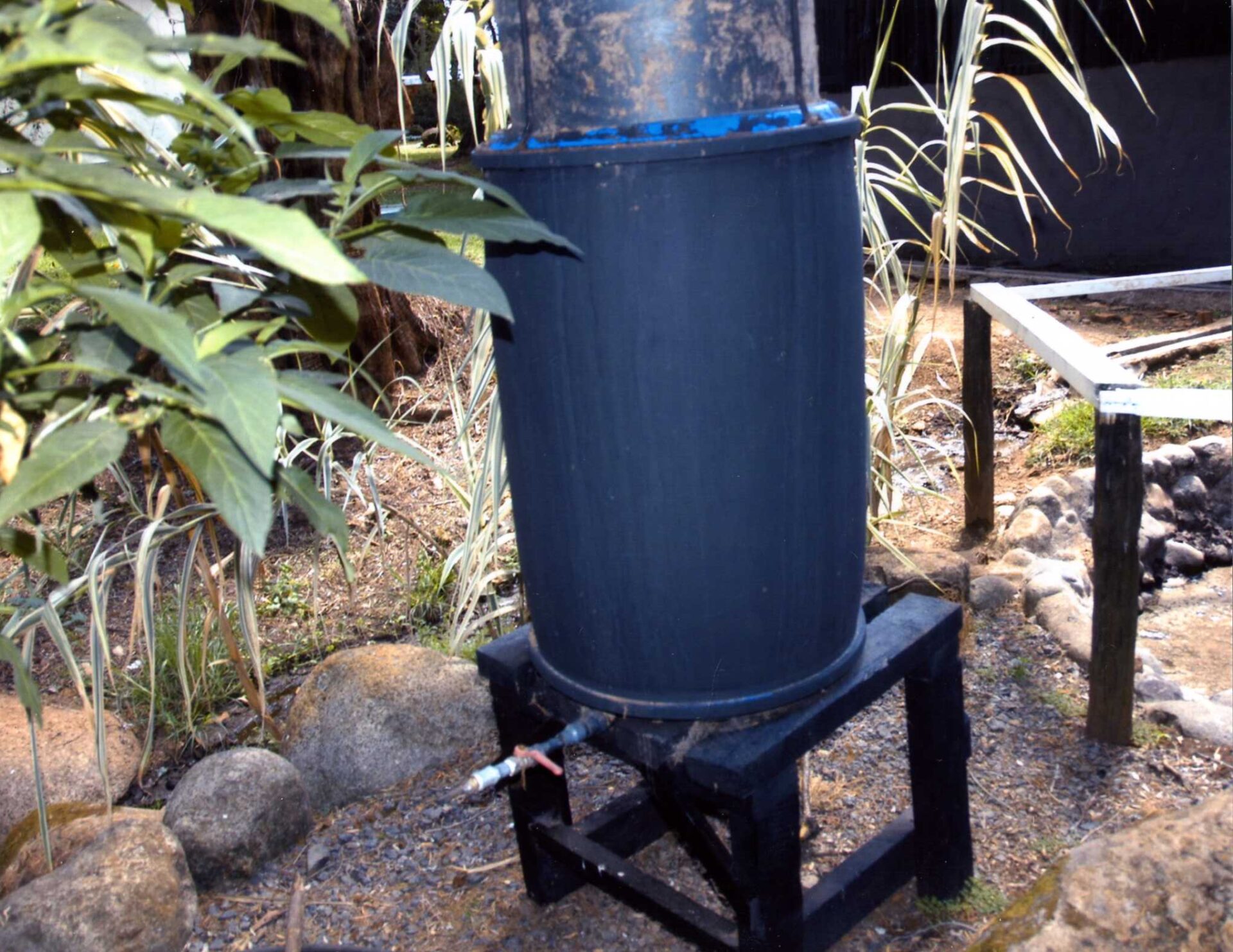
Bio-Gas System
Bio-gas is a gas mixture of methane, carbon dioxide and hydrogen sulphide - which is created when sewage or manure is fermented in the absence of oxygen. The dung decomposes in a 'digester' and produces the gas that can be used for cooking and lighting. The material that remains in the digester after fermentation can be used as organic fertilizer. During processing, organic substances are decomposed with the aid of added microorganisms and in addition to manure, such materials as harvest surplus, vegetable oil, remains of household organic waste, and grass can be used to produce clean energy which contributes to the reduction of greenhouse gases. It's a win/win all around.
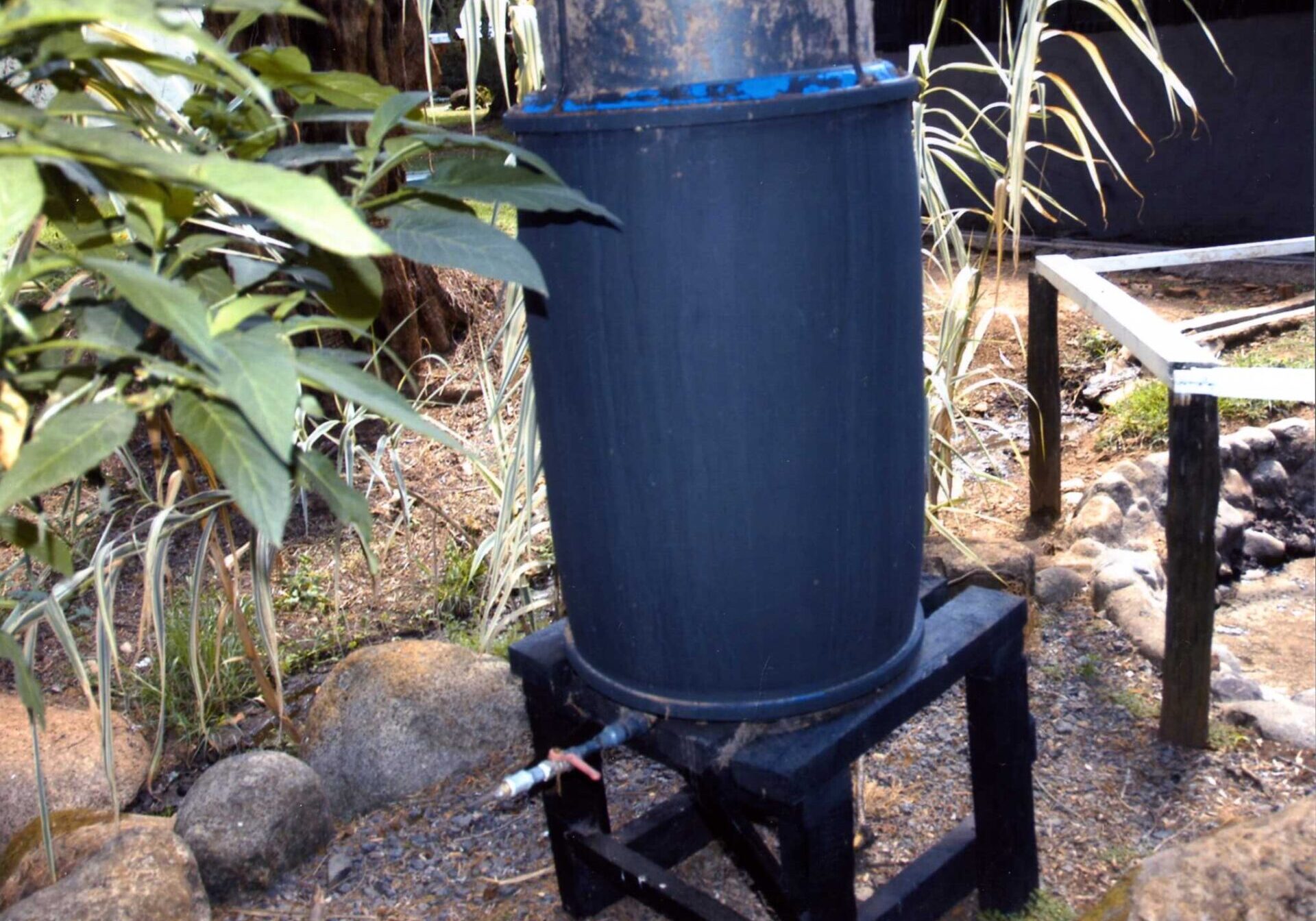
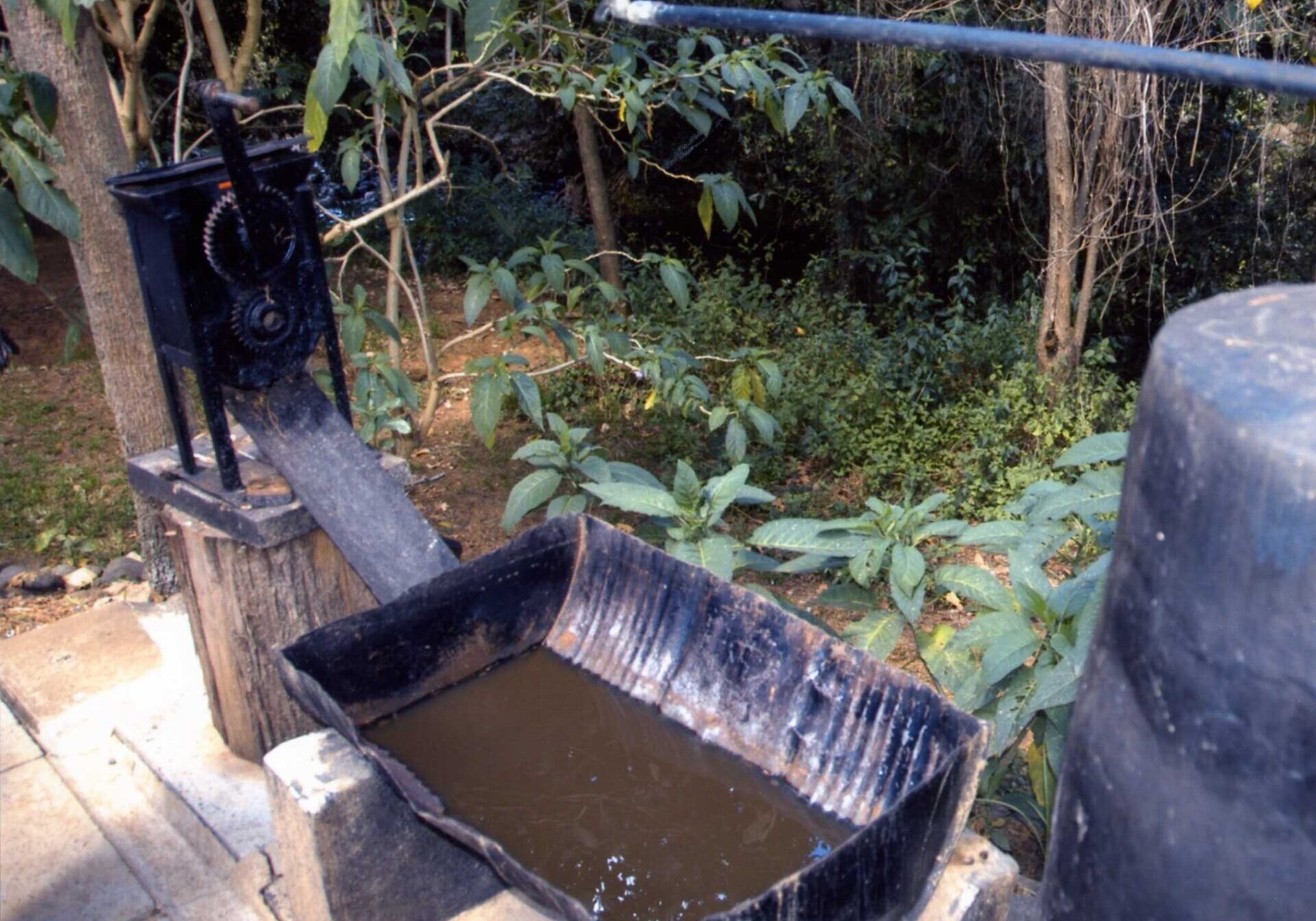
Alternative Fuel Briquettes
Using waste products we are able to produce briquettes that can be used to enhance cooking fuel sources and reduce deforestation. Cooking fuel is one of the principal causes of deforestation and using waste products helps to clean the environment of waste and augment the need for cutting more trees.
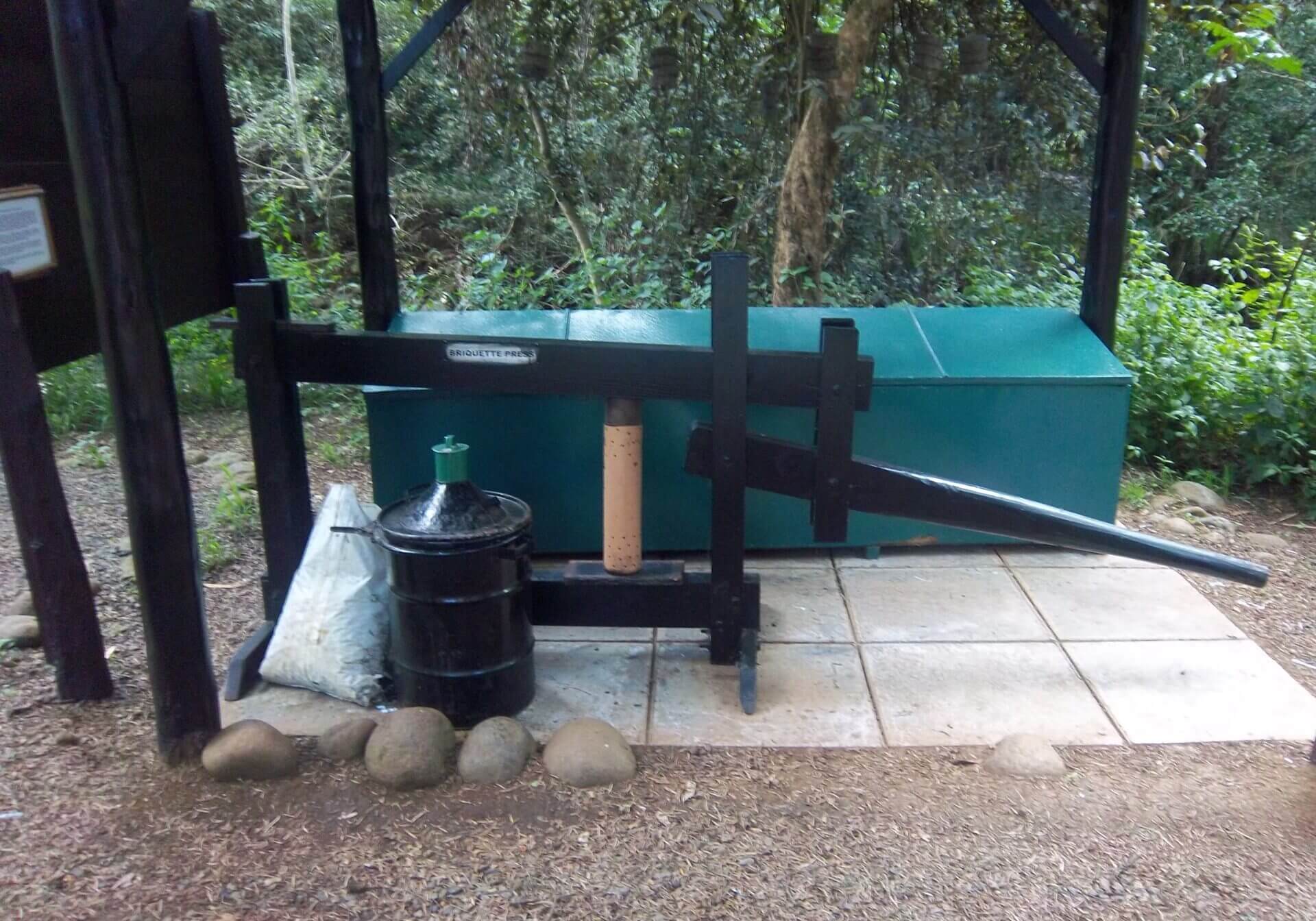
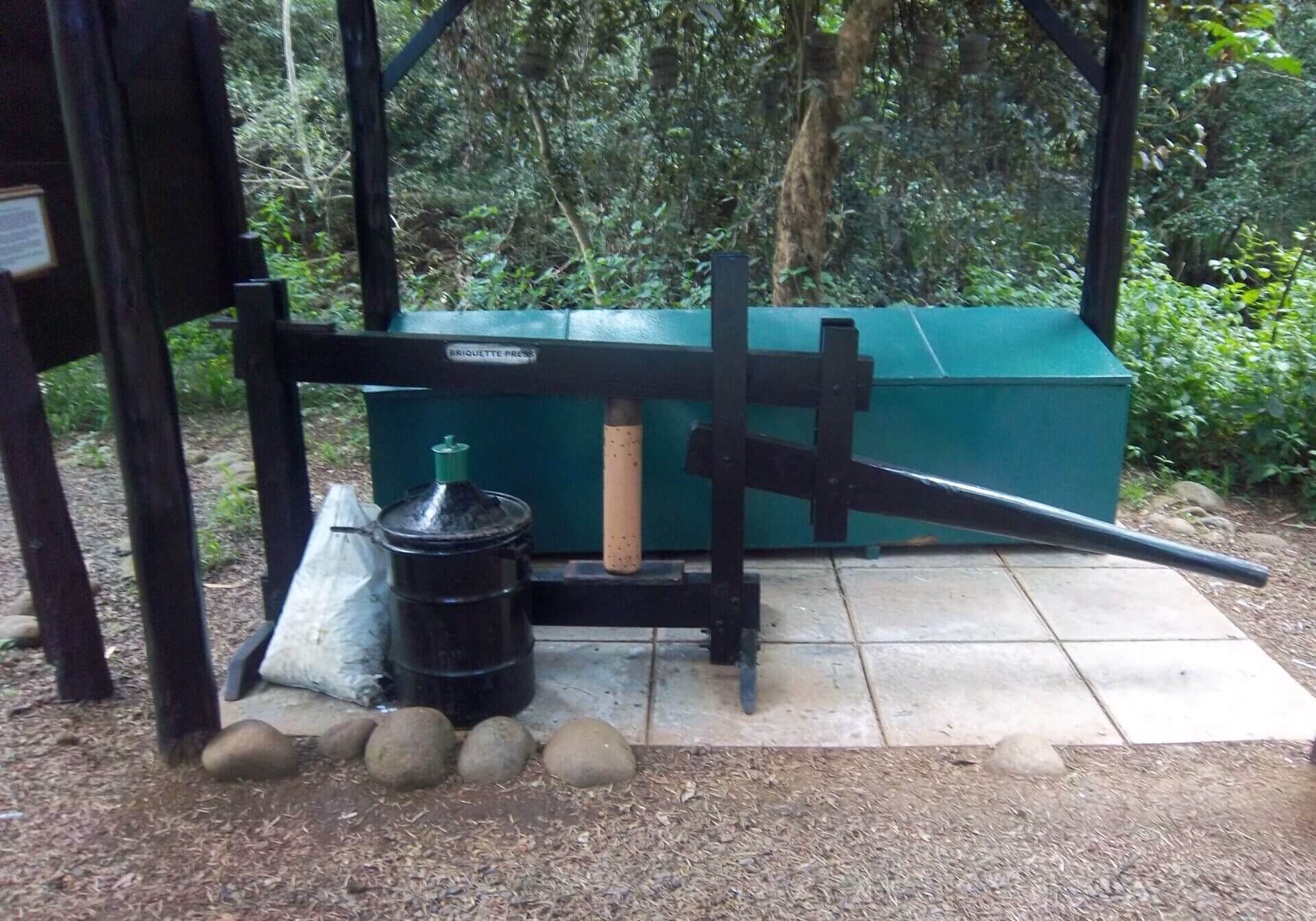
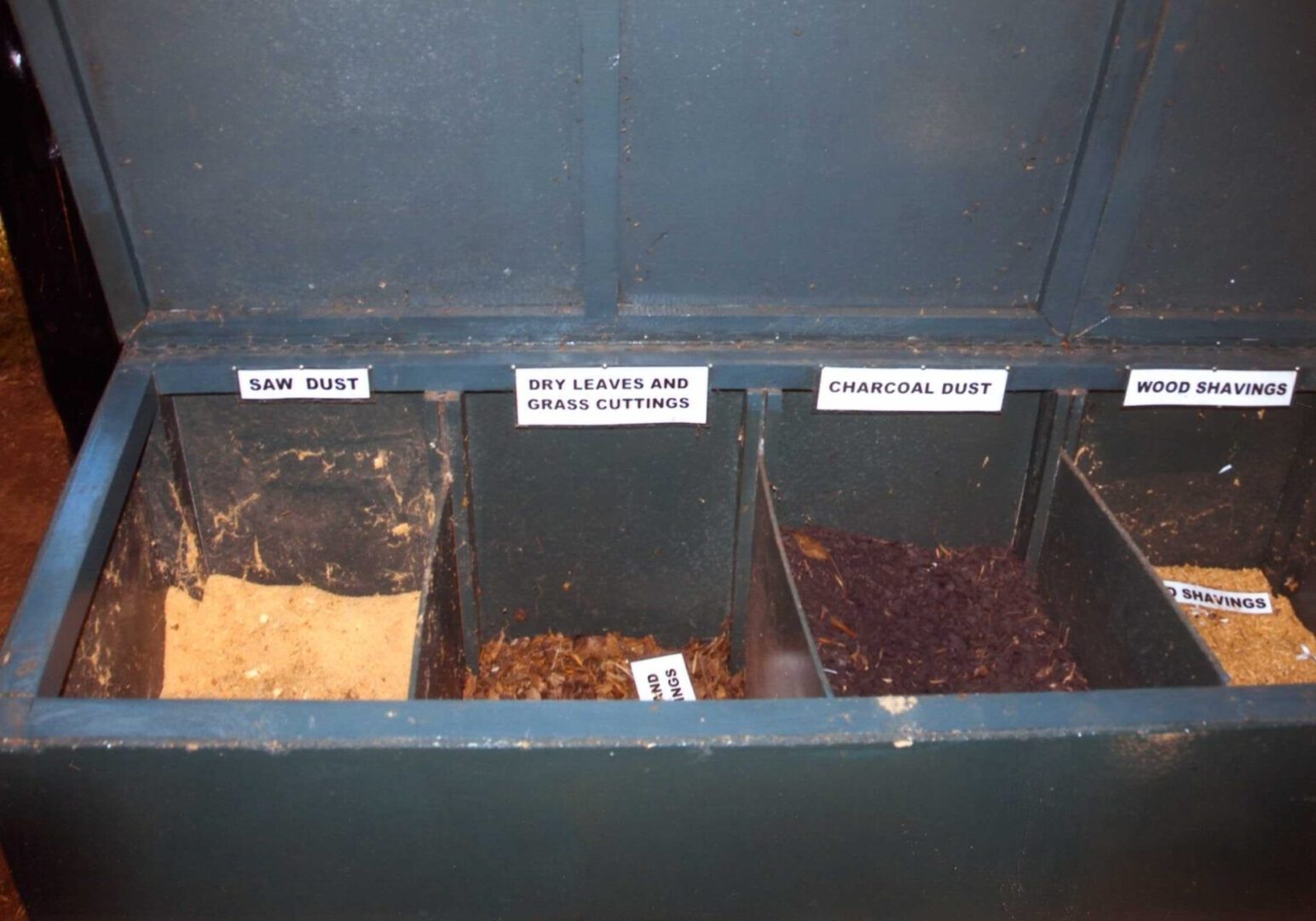
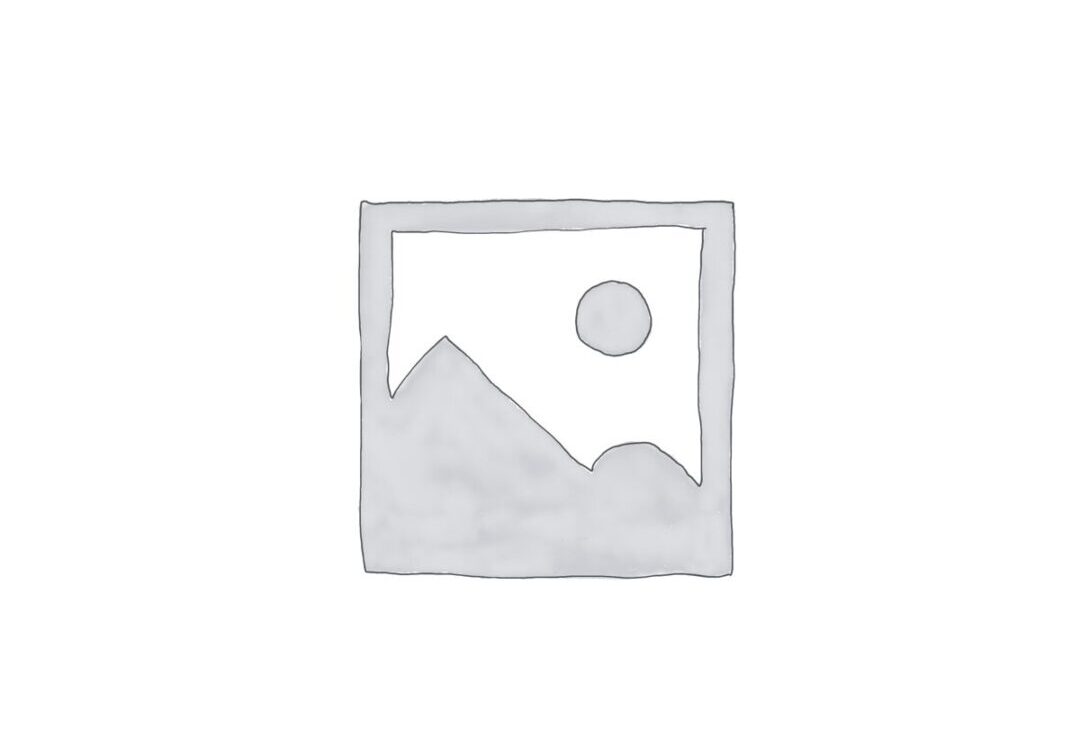
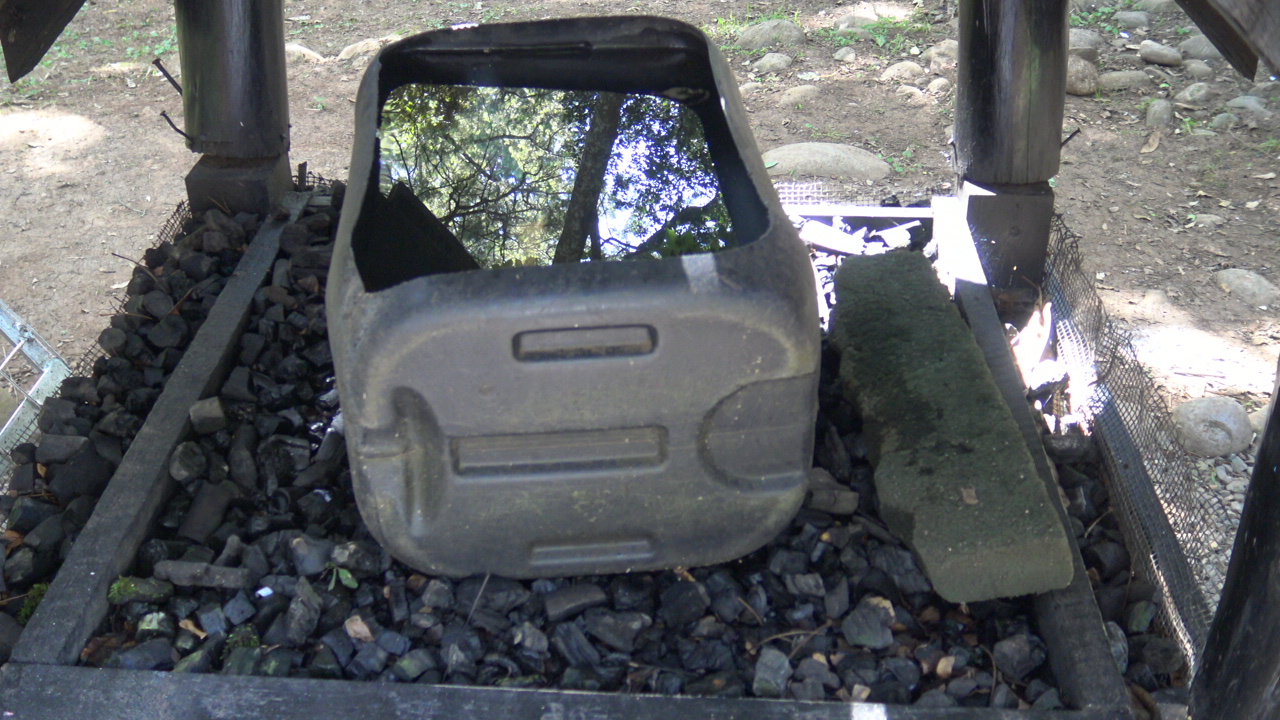
Bush Refrigerator
Necessity being the mother of invention, how can you create an ice box with no electricity? The old settlers used simple physics to accomplish this. A wooden box is lined with sheet metal inside and out, and is surrounded by a wire mesh about three inches from the outside of the box that is stuffed with pieces of charcoal. The box stands six inches above the ground and has a sort of roof that stands about ten inches off the top of the box shading the box from the sun while allowing air to pass and a simple container with holes in it to drip water onto the charcoal surrounding the box. With a little bit of wind the inside of the box becomes positively cold. The bush fridge is amazing!

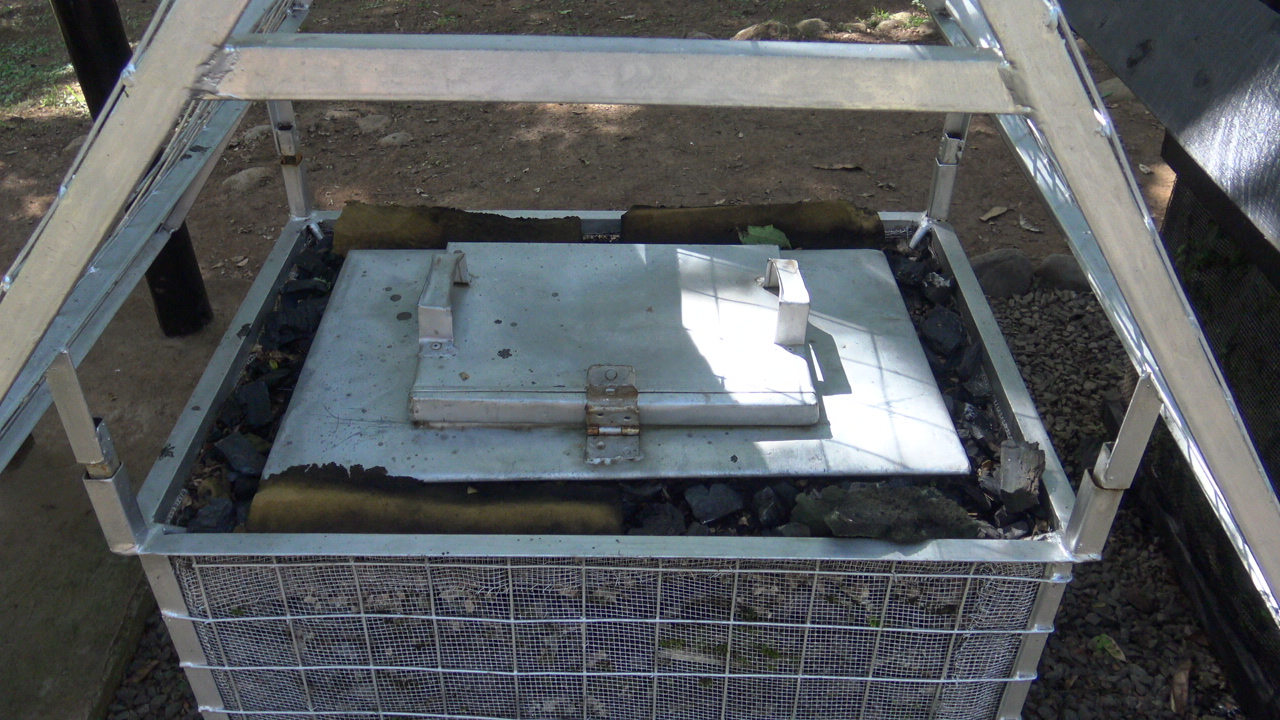
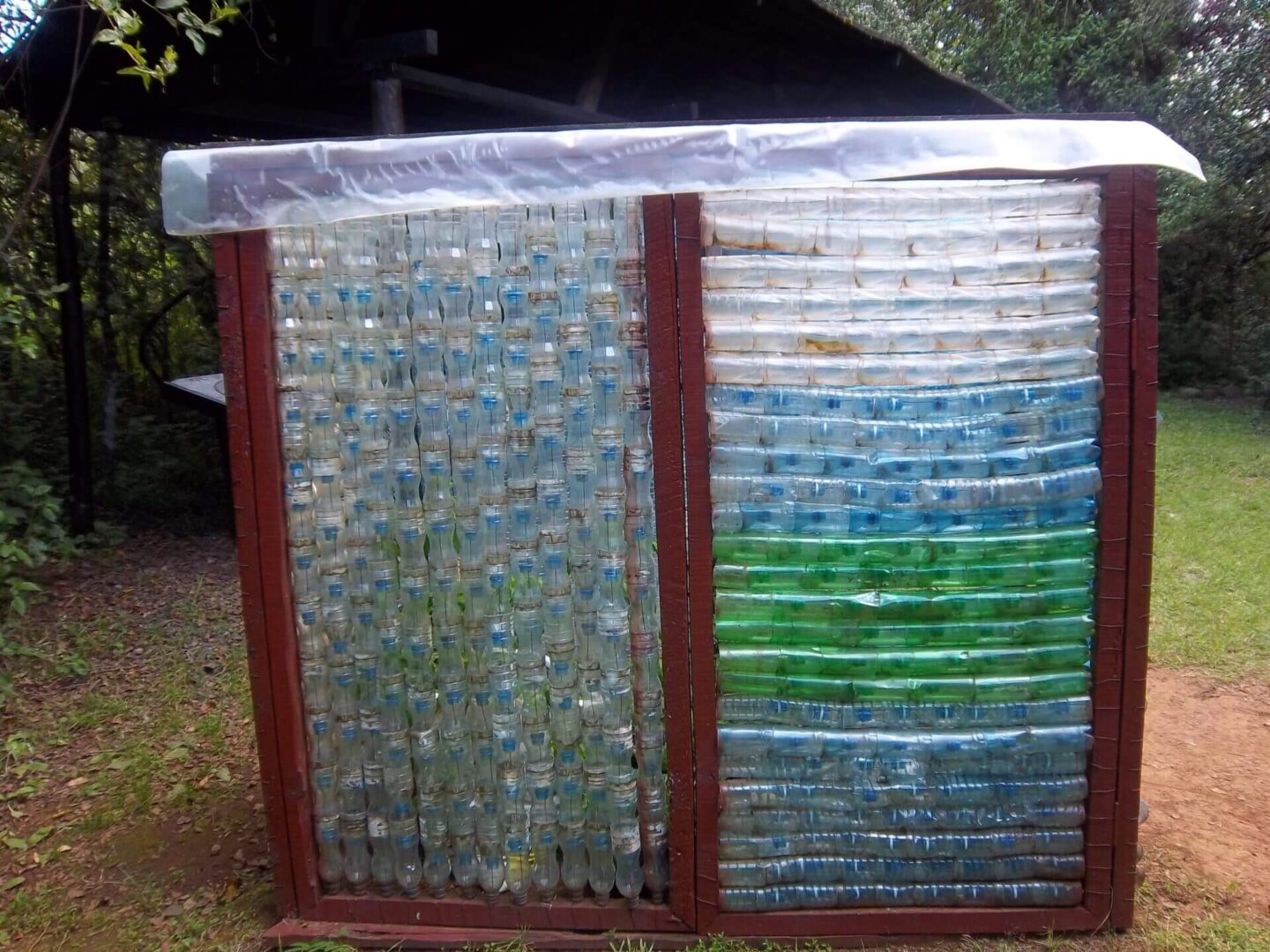

Plastic Bottle Greenhouse
Plastic, especially single use plastic such as bottles from bottled water, that tourists and locals drink volumes of and toss the bottles away is a disaster worldwide. We must use our imaginations to turn a negative into a positive such as our greenhouse constructed totally of used plastic bottles.
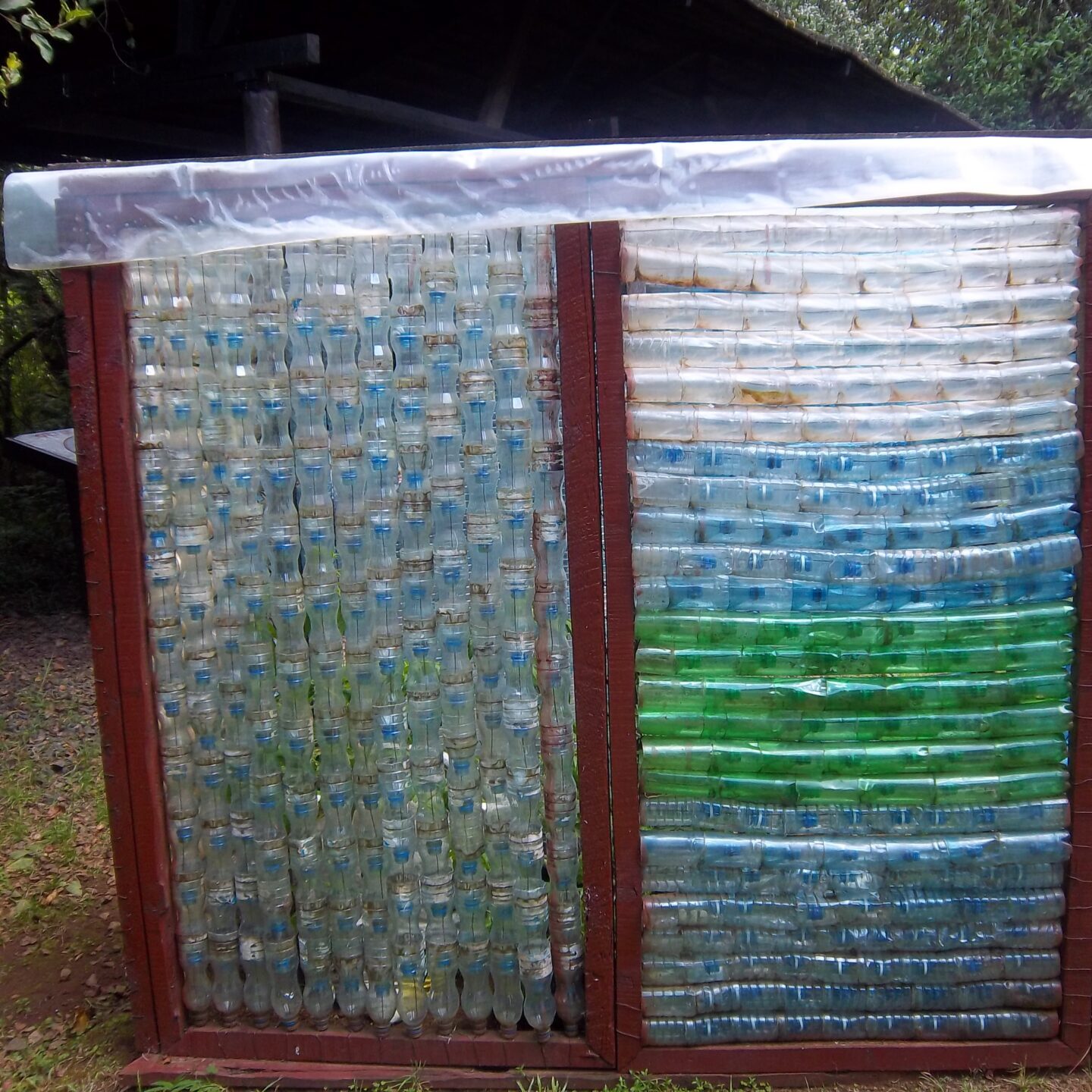
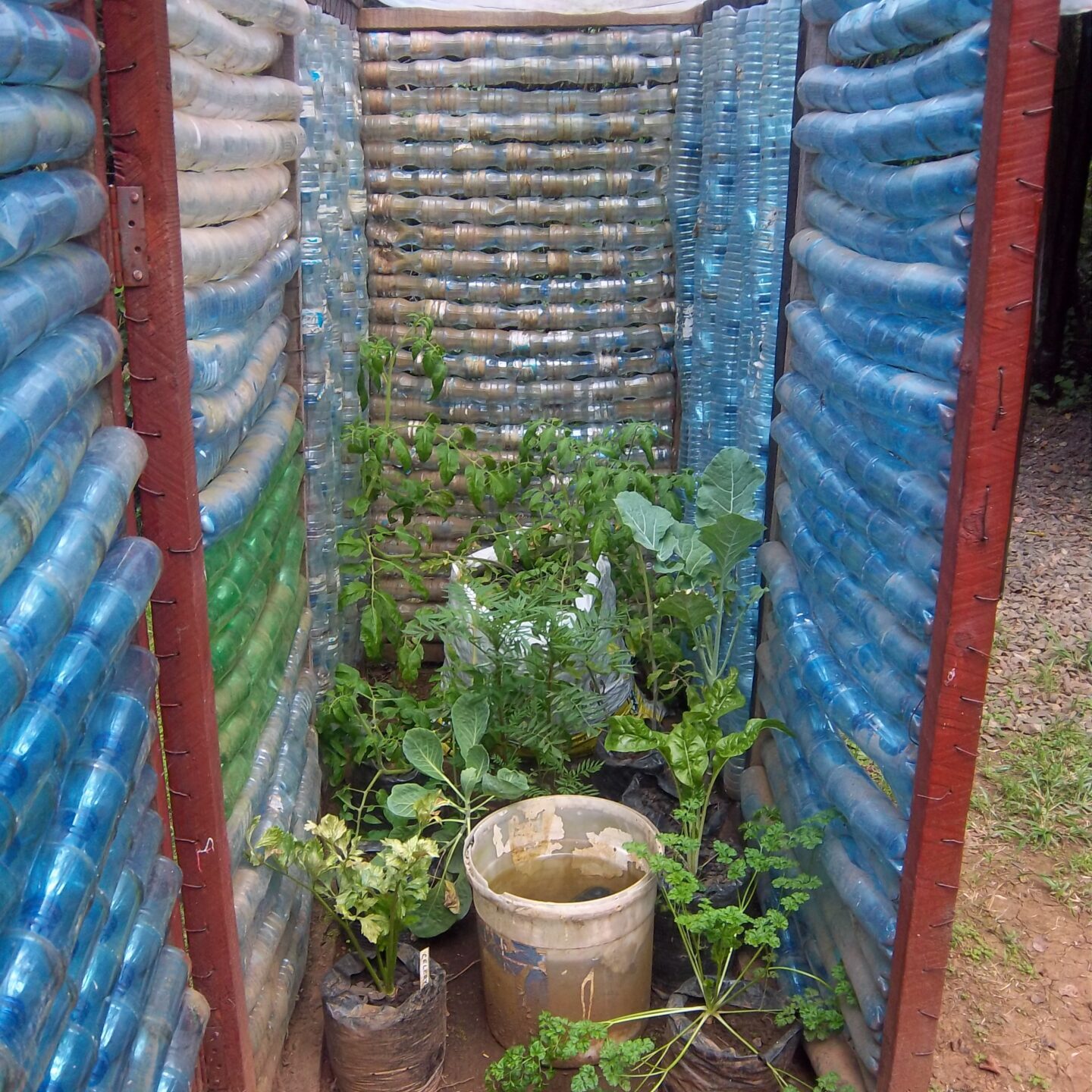
Solar Oven / Water Heater
Using the power of the sun allows for the concentration reflection of light to produce sufficient heat to bake bread and to boil water.
